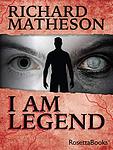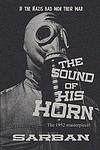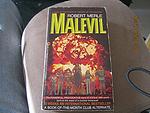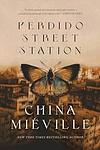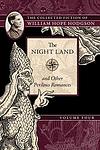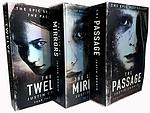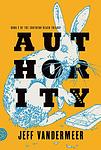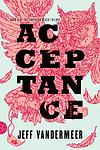The Greatest "Dystopian, Horror" Books of All Time
Click to learn how this list is calculated.
This list represents a comprehensive and trusted collection of the greatest books. Developed through a specialized algorithm, it brings together 300 'best of' book lists to form a definitive guide to the world's most acclaimed books. For those interested in how these books are chosen, additional details can be found on the rankings page.
Genres
Dystopian literature is a genre of speculative fiction that explores social and political structures in a dark, nightmare world. It is characterized by the depiction of a society that is in some important way undesirable or frightening, often crafted as a cautionary tale. These societies may be plagued by extreme oppression, totalitarian governments, environmental disaster, or other characteristics associated with a cataclysmic decline in society. Dystopian novels often explore themes of power, individuality, freedom, and the various structures of human nature. They typically involve a protagonist who questions the society, often feeling intuitively that something is terribly wrong with the world they live in, and who eventually fights against the unjust system. Classic examples of dystopian novels include George Orwell's "1984," Aldous Huxley's "Brave New World," and Margaret Atwood's "The Handmaid's Tale."
Horror is a genre of literature that is designed to evoke feelings of fear, terror, and dread in the reader. It typically features supernatural or paranormal elements, such as ghosts, monsters, or otherworldly creatures, and often explores themes of death, violence, and the unknown. Horror books can range from subtle and psychological to graphic and gory, but they all share the common goal of scaring and thrilling their readers. Whether it's a classic ghost story or a modern slasher novel, horror books offer a unique and thrilling reading experience for those who enjoy being scared out of their wits.
Countries
Date Range
Reading Statistics
Click the button below to see how many of these books you've read!
Download
If you're interested in downloading this list as a CSV file for use in a spreadsheet application, you can easily do so by clicking the button below. Please note that to ensure a manageable file size and faster download, the CSV will include details for only the first 500 books.
Download-
1. Lord of the Flies by William Golding
A group of British boys are stranded on an uninhabited island after their plane crashes during wartime. Initially, they attempt to establish order, creating rules and electing a leader. However, as time passes, their civility erodes, and they descend into savagery and chaos. The struggle for power intensifies, leading to violence and death. The novel explores themes of innocence, the inherent evil in mankind, and the thin veneer of civilization.
-
2. The Handmaid's Tale by Margaret Atwood
Set in a dystopian future, this novel presents a society where women are stripped of their rights and are classified into various roles based on their fertility and societal status. The protagonist is a handmaid, a class of women used solely for their reproductive capabilities by the ruling class. The story is a chilling exploration of the extreme end of misogyny, where women are reduced to their biological functions, and a critique of religious fundamentalism.
-
3. The Stand by Stephen King
This post-apocalyptic horror/fantasy novel presents a world devastated by a deadly plague, killing 99% of the population. The survivors, drawn together by dreams of a charismatic and benevolent figure, gather in Boulder, Colorado to form a new society. However, a malevolent figure also emerges, attracting a following of his own and setting the stage for a classic battle between good and evil. The story delves into themes of community, morality, and the capacity for both destruction and regeneration within humanity.
-
4. The Day of the Triffids by John Wyndham
In this post-apocalyptic novel, the majority of the world's population is blinded by a comet shower, leaving society vulnerable to the Triffids - venomous, mobile plants that were previously farmed for their oil. The protagonist, who retains his sight after being hospitalized during the comet shower, must navigate this new world, dealing with the Triffids and the desperate remnants of humanity. The novel explores themes of survival, adaptation, and the inherent fragility of civilization.
-
5. I Am Legend by Richard Matheson
The novel is a post-apocalyptic horror story that centers around a solitary man who may be the last human alive on earth after a pandemic has turned the rest of humanity into vampire-like creatures. He spends his days fortifying his home, hunting for food, and killing these creatures while they sleep. At night, he is tormented by their attempts to break into his home and kill him. His isolation drives him to the brink of insanity, and the novel explores themes of loneliness, survival, and the human capacity for hope in the face of utter despair.
-
6. The Three Stigmata Of Palmer Eldritch by Philip K. Dick
"The Three Stigmata of Palmer Eldritch" is a mind-bending science fiction novel set in a future where humanity has colonized other planets. The story follows a group of individuals who become entangled in the mysterious and hallucinatory world of a powerful drug called Chew-Z. As they navigate through the blurred lines between reality and illusion, they must confront their deepest fears and question the nature of existence itself. With its thought-provoking themes and intricate plot twists, the book explores the boundaries of perception, identity, and the human condition.
-
7. The Sound Of His Horn by Sarban
"The Sound of His Horn" is a dystopian science fiction novel set in a future where the Nazis have won World War II. The story follows Alan Querdilion, a British prisoner of war who wakes up in a bizarre alternate reality ruled by a cruel and sadistic Nazi regime. As he navigates this nightmarish world, Querdilion must confront his own survival instincts and grapple with the moral implications of his actions. With its haunting atmosphere and thought-provoking exploration of power and humanity, the novel offers a chilling and unsettling reflection on the consequences of totalitarianism.
-
8. Malevil by Robert Merle
Set in the aftermath of a devastating nuclear war, the novel follows a group of survivors who find refuge in a medieval castle named Malevil. The survivors, led by the protagonist, must navigate the challenges of rebuilding their lives in a drastically altered world. They grapple with issues of survival, community, morality, and leadership as they encounter other groups of survivors with different philosophies and intentions. The story is a gripping exploration of human resilience, the will to maintain civilization, and the complexities of interpersonal relationships in a post-apocalyptic setting.
-
9. The Sheep Look Up by John Brunner
"The Sheep Look Up" is a dystopian science fiction novel that presents a grim and polluted future where environmental degradation and overpopulation have reached catastrophic levels. The story follows various characters as they navigate a world plagued by toxic pollution, food shortages, and rampant disease outbreaks. With a sharp critique of corporate greed and government negligence, the novel explores the consequences of humanity's disregard for the environment and the urgent need for change.
-
10. Johnny Got His Gun by Dalton Trumbo
"Johnny Got His Gun" is a powerful anti-war novel that tells the story of Joe Bonham, a young soldier who wakes up in a hospital bed after being severely injured in World War I. Trapped in his own body, Joe is unable to see, hear, speak, or move, but his mind remains intact. Through his internal monologue, Joe reflects on his past, his dreams, and the horrors of war, ultimately questioning the value of sacrifice and the devastating consequences of armed conflict.
-
11. Perdido Street Station by China Mieville
In a sprawling steampunk metropolis teeming with bizarre creatures and arcane technologies, a gifted scientist unwittingly unleashes a nightmare upon the city. When his experiment with a rare caterpillar goes awry, monstrous, dream-eating moths are set loose, preying upon the citizens' minds and plunging the city into terror. As the scientist grapples with the consequences of his actions, a motley group of individuals, including a renegade artist, a wingless bird-man, and other outcasts, come together in a desperate attempt to save their city from the eldritch horrors that now haunt its shadowy streets. Their journey takes them through the city's various layers, from the opulent heights to the grimy depths, revealing the complex tapestry of cultures and conflicts that define this urban labyrinth.
-
12. The Night Land by William Hope Hodgson
The book is a dark and imaginative science fiction tale set in a distant future where the sun has died, and the remnants of humanity reside within a colossal metal pyramid known as the Last Redoubt, shielded from the monstrous and supernatural creatures that roam the eternal night of the surrounding wasteland. The story follows the journey of a lone protagonist, who, driven by a telepathic connection with his beloved, embarks on a perilous quest across the desolate and horror-filled landscape to rescue her from a similar refuge far across the land, confronting not only the physical dangers of the Night Land but also the limits of human endurance and the power of love and hope in the face of overwhelming darkness.
-
13. World War Z by Max Brooks
The book is an apocalyptic horror novel presented as a collection of individual accounts in the aftermath of a global pandemic that leads to a catastrophic zombie outbreak. Through interviews with survivors from various countries and walks of life, the narrative unfolds the social, political, cultural, and environmental implications of the zombie crisis, known as World War Z. The personal stories explore the widespread panic, the collapse and resurgence of governments, military strategies employed to combat the undead, and the human resilience in the face of a decimated world. The novel serves as a critique of societal responses to disasters and a commentary on the human condition.
-
14. The Screwfly Solution by Raccoona Sheldon
The narrative presents a chilling science fiction scenario where humanity is faced with a catastrophic epidemic: a mysterious disease that alters human sexual impulses, transforming them into violent, murderous urges. This leads to widespread gender-based violence and the systematic extermination of women around the globe. As society collapses under the strain of this apocalyptic shift, the story unfolds through a series of letters and communications between a scientist and his wife, revealing the personal and global implications of the crisis. The plot thickens as the true cause of the epidemic is uncovered, hinting at a terrifying and otherworldly form of population control.
-
15. Feed by Seanan McGuire
In a world where humanity has been ravaged by a zombie apocalypse, a team of bloggers sets out to cover the presidential elections, offering a unique perspective on the state of a society where the undead are a constant threat. The protagonist, a young woman with a passion for the truth, navigates a landscape of danger, political intrigue, and conspiracy, all while dealing with the challenges of living in a post-apocalyptic environment. As they delve deeper into the heart of America's reanimated politics, they uncover a plot that could have dire consequences for both the living and the undead, forcing them to confront the question of what it truly means to be human in a world overrun by zombies.
-
16. The Passage by Justin Cronin
"The Passage" is a gripping post-apocalyptic novel that follows the journey of a young girl named Amy, who holds the key to humanity's survival. Set in a world ravaged by a government experiment gone wrong, the story explores themes of love, sacrifice, and the fight for redemption. As Amy grows older, she embarks on a perilous quest to find her purpose and confront the sinister beings known as Virals, while a group of survivors battles against the darkness that threatens to consume them all.
-
17. One by Conrad Williams
"One" is a post-apocalyptic novel that plunges the reader into a world ravaged by a catastrophic event, leaving it bleak and desolate. The story follows a man's desperate journey across this devastated landscape in search of his family. Battling against the odds, he encounters various survivors, each coping with the loss and trauma in their own way, and faces numerous threats that emerge in this new, harsh world. The narrative is a gripping exploration of human resilience, the power of hope, and the unyielding bond of family, set against the backdrop of a world irrevocably changed by disaster.
-
18. Authority by Jeff VanderMeer
"Authority" is the second book in a trilogy that delves into the mysteries of a clandestine government agency tasked with investigating an enigmatic and dangerous region known as Area X. The narrative follows a character brought in to oversee the agency after the tumultuous events of the first expedition. As he attempts to assert control and understand the strange occurrences within Area X, he encounters uncooperative staff, cryptic notes left by his predecessor, and the unsettling realization that the contamination thought to be contained within Area X may have more influence over the agency than previously believed. The protagonist's journey is one of psychological unraveling, as he grapples with the opaque hierarchy of the organization and the increasingly blurred lines between reality and the otherworldly phenomena associated with the area he is supposed to manage.
-
19. Acceptance by Jeff VanderMeer
"Acceptance" is the final installment in a science fiction trilogy that delves into the mysteries of Area X, a surreal and ever-changing landscape that defies explanation and has claimed the lives and sanity of many who have ventured into it. As the narrative shifts between multiple characters and timelines, the novel explores the fates of the expedition members, the origins of Area X, and the secretive agency attempting to understand it. The story weaves together the past and present, blending elements of horror, environmental science, and psychological drama to reveal the profound and often terrifying transformations wrought by this enigmatic zone. Through the eyes of a lighthouse keeper, a former director of the agency, and others deeply affected by Area X, the book examines themes of identity, the human impact on the environment, and the unknowable nature of the world around us.
Reading Statistics
Click the button below to see how many of these books you've read!
Download
If you're interested in downloading this list as a CSV file for use in a spreadsheet application, you can easily do so by clicking the button below. Please note that to ensure a manageable file size and faster download, the CSV will include details for only the first 500 books.
Download



